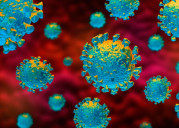Researchers claim cervical cancer cases could be reduced by 90% over the next century

Kathmandu, February 2
Recent studies predicted that vaccinating girls from low and middle income countries against the human papillomavirus (HPV) could lead to an 89.4% reduction in cervical cancer cases over the next century.
As per Medical News Today, HPV is a widespread virus and most people who are sexually active experience an HPV infection during their lifetime. In more severe cases, the virus can cause genital warts and cancer—and it is the top risk factor for cervical cancer but it could be prevented through vaccination against HPV.
The studies, conducted by the researchers affiliated with the World Health Organization Cervical Cancer Elimination Modelling Consortium, which were published in The Lancet argued that cervical cancer could become a distant memory within the next 100 years.
The consortium was co-led by Prof. Marc Brisson from Université Laval’s Faculty of Medicine in Québec, Canada.
As per the Medical News Today, an a study, Prof. Marc Brisson and his colleagues argued that with adequate vaccination, low- and middle-income countries could avert an estimated 61 million cases of cervical cancer up to 2120.
The researchers also told that getting screened for this type of cancer twice in one’s lifetime can reduce its incidence by 96.7%, and avert 2.1 million new cases.
In their another study, the researchers estimated that in low and middle income countries—the regions whose populations are most affected by cervical cancer—the mortality rate for cervical cancer will be 13.2 per 100,000 women in 2020.
However, they claimed that if those countries implement effective twice-lifetime screening policies, as well as deliver appropriate treatment where needed, this action could lower the mortality rate by 34.2% by 2030.














